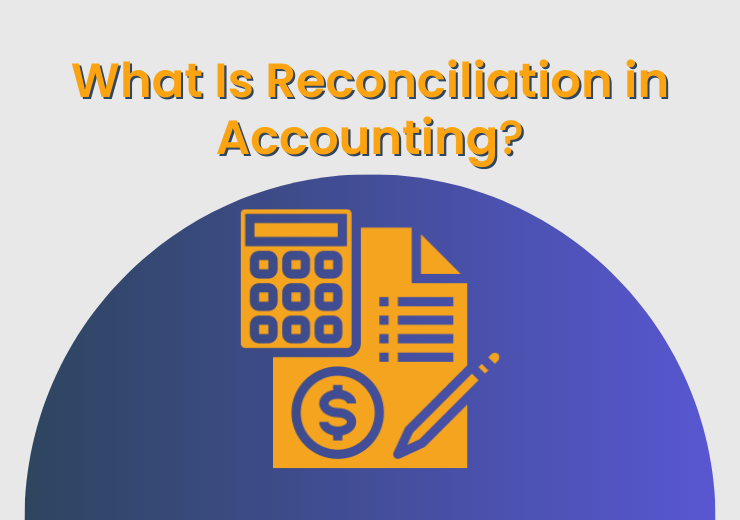1. Introduction
In the realm of accounting, maintaining accurate and reliable financial records is essential for the smooth operation and success of any business. Reconciliation plays a pivotal role in ensuring the integrity of financial data. This article aims to provide a comprehensive understanding of reconciliation in accounting, its importance, process, benefits, best practices, and challenges associated with it.
2. Understanding Reconciliation in Accounting
Definition of Reconciliation
Reconciliation, in accounting, refers to the process of comparing and matching financial records to ensure consistency and accuracy. It involves comparing different sets of data, identifying discrepancies, and resolving them to achieve alignment between various financial statements.
Importance of Reconciliation
Reconciliation holds significant importance in accounting due to several reasons. Firstly, it helps in detecting errors and discrepancies, ensuring the accuracy and integrity of financial information. Secondly, reconciliation plays a crucial role in identifying and preventing financial fraud, and safeguarding the business’s financial health. Lastly, it enables businesses to perform effective financial analysis, aiding decision-making processes.
3. Types of Reconciliation in Accounting
Bank Reconciliation
Bank reconciliation involves comparing a company’s bank statements with its internal financial records. It ensures that all transactions are accurately recorded, identifies any discrepancies, such as missing deposits or unauthorized withdrawals, and resolves them to achieve a balanced reconciliation.
Balance Sheet Reconciliation
Balance sheet reconciliation focuses on reconciling the balances of various accounts present in the balance sheet. It involves comparing the general ledger balances with the supporting documents and identifying any inconsistencies or errors that need to be rectified.
Intercompany Reconciliation
Intercompany reconciliation is relevant for businesses with multiple entities or subsidiaries. It involves reconciling transactions and balances between different entities to eliminate any discrepancies and ensure accurate consolidation of financial information.
4. The Reconciliation Process
Gathering Financial Statements
The reconciliation process begins with collecting relevant financial statements, such as bank statements, general ledgers, and supporting documents.
Identifying Discrepancies
In this step, the accountant or finance professional compares the data from different sources and identifies any differences or inconsistencies between them.
Investigating and Resolving Differences
Once discrepancies are identified, further investigation is conducted to determine the root causes. The discrepancies are then resolved through necessary adjustments or corrections, ensuring accurate alignment between the financial records.
5. Benefits of Reconciliation in Accounting
Ensuring Accuracy and Integrity of Financial Records
Reconciliation helps in maintaining accurate financial records by identifying and rectifying errors or discrepancies. It ensures the integrity and reliability of financial data, providing a solid foundation for decision-making processes.
Detecting Errors and Fraud
Reconciliation acts as a safeguard against errors and fraudulent activities. By thoroughly comparing and verifying financial information, it helps in identifying any inconsistencies or suspicious transactions that may indicate fraud.
Facilitating Financial Analysis
Accurate and reconciled financial records provide a reliable basis for financial analysis. It enables businesses to assess their performance, identify trends, and make informed strategic decisions.
6. Best Practices for Effective Reconciliation
Regular Reconciliation Schedule
Establishing a regular reconciliation schedule ensures that the process is conducted consistently and timely. It helps in preventing backlogs and ensures that financial records are always up to date.
Thorough Documentation
Maintaining detailed documentation of the reconciliation process is crucial. It provides transparency and serves as a reference for future audits or investigations.
Automation and Technology
Leveraging automation tools and technology can streamline the reconciliation process, reducing manual errors and saving time. Dedicated reconciliation software can automate data matching, flagging discrepancies, and generating reports.
7. Challenges and Solutions in Reconciliation
Time Constraints and Resource Allocation
The reconciliation process can be time-consuming, particularly for businesses with a large volume of transactions. Allocating sufficient resources and employing automation tools can help overcome these challenges.
Reconciliation Tools and Software
Investing in specialized reconciliation tools and software can enhance the efficiency and accuracy of the reconciliation process. These tools automate data matching, provide real-time visibility, and generate comprehensive reports.
8. Conclusion
Reconciliation is an indispensable practice in accounting that ensures the accuracy, integrity, and reliability of financial records. By comparing and matching different sets of data, identifying discrepancies, and resolving them, businesses can maintain trustworthy financial information. Implementing best practices and leveraging technology can streamline the reconciliation process, allowing businesses to focus on their core operations and make informed decisions based on accurate financial data.
FAQs (Frequently Asked Questions)
What happens if reconciliation is not done in accounting?
Failure to perform reconciliation in accounting can lead to inaccurate financial records, making it challenging to make informed decisions. It can also result in financial discrepancies, unidentified errors, and potential fraud going unnoticed.
How often should reconciliation be performed?
The frequency of reconciliation depends on the nature and volume of transactions. In general, it is recommended to perform reconciliation monthly, but businesses with high transaction volumes may need to reconcile more frequently, such as weekly or daily.
Is reconciliation only necessary for large businesses?
No, reconciliation is necessary for businesses of all sizes. Regardless of the company’s scale, accurate financial records are essential for compliance, decision-making, and ensuring the overall financial health of the organization.
Can reconciliation uncover financial fraud?
Yes, reconciliation can help in uncovering financial fraud. By comparing and cross-referencing financial data, reconciliation can identify inconsistencies or suspicious transactions that may indicate fraudulent activities.
What are the common errors found during reconciliation?
Common errors found during reconciliation include data entry mistakes, duplicated transactions, omitted entries, and discrepancies between financial statements. Thorough reconciliation processes can help in identifying and rectifying these errors.

